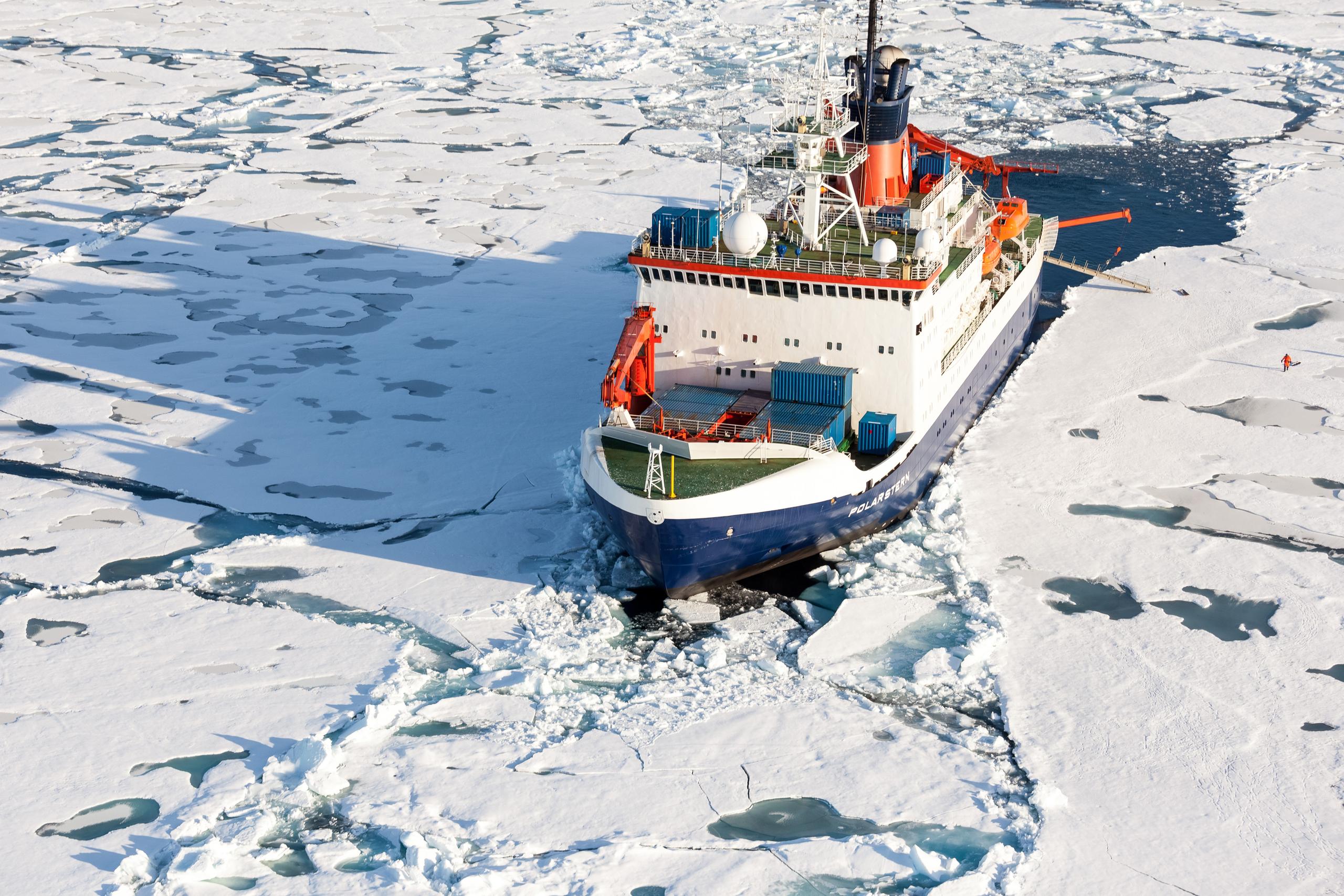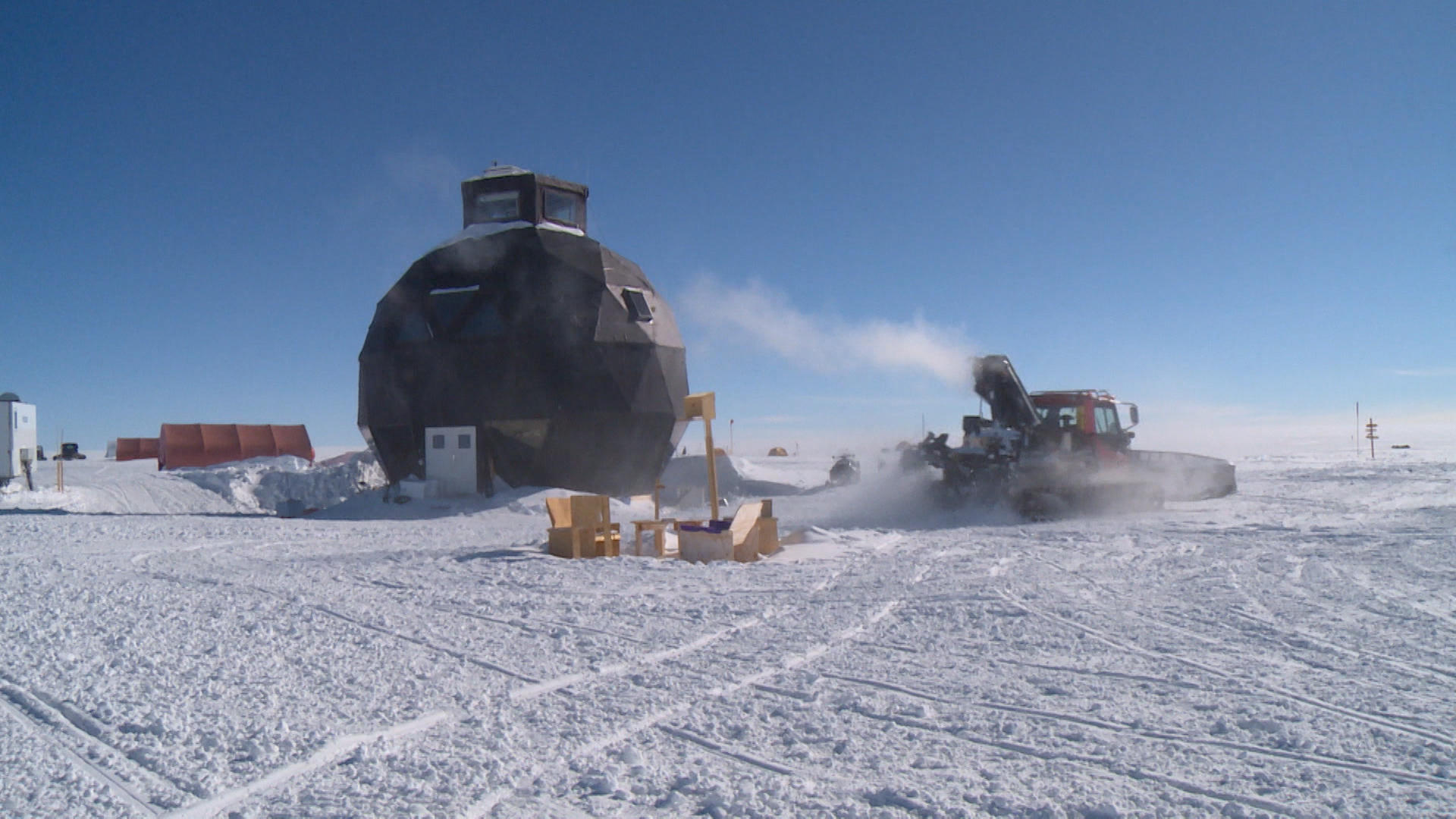
Swiss scientists take part in unique polar research expedition

Researchers from 19 countries, including Switzerland, are setting off on Friday night from Norway on an icebreaker to take part in a year-long international expedition to the Arctic to study climate change.
Researchers from the Swiss Federal Institute for Forest, Snow and Landscape Research (WSL) and the Paul Scherrer Institute (PSI) are part of the expedition team on the German icebreaker Polarstern, which is due to set sail from Tromsoe in northern Norway towards the North Pole.
Around 600 people are involved the CHF140 million ($141 million) MOSAIC expedition, which is being organised by the Alfred Wegener Institute (AWI)External link. Swiss-designed experiments will also be on board the ship.
On a rotating basis, the researchers will study the Arctic climate system, which has been severely affected by climate change. They want to better understand how the atmosphere, ocean, sea ice and the ecosystem interact – particularly in winter.
“Global emissions of greenhouse gases and the particulate matter produced in Europe, Asia and North America affect climate change in the Arctic,” said Swiss atmospheric researcher Julia Schmale in a statementExternal link. “In turn, the rising temperature and the decline of the sea ice have an impact on weather systems in Europe. It is therefore vital to understand how we influence the Arctic and how it influences us.”
After leaving Norway, the Polarstern will spend several months encased in an ice floe, which will drift several hundred kilometres through the Arctic Ocean, passing close to the North Pole. The ship is expected to be released from the floe, northeast of Greenland, in late summer 2020.
Schmale is responsible for a project that examines how and on which natural and man-made condensation nuclei (particles) clouds form. Another Swiss project studies the interaction between sea ice and snow, which slows the exchange of energy between the atmosphere and the ocean.
WSL has developed a device that measures the microwaves emitted by sea ice, which is being transported on the icebreaker to record the thickness and other properties of the ice. The results will be compared with measurements taken from satellites.

More
Why Switzerland is interested in polar research

In compliance with the JTI standards
More: SWI swissinfo.ch certified by the Journalism Trust Initiative






























You can find an overview of ongoing debates with our journalists here . Please join us!
If you want to start a conversation about a topic raised in this article or want to report factual errors, email us at english@swissinfo.ch.